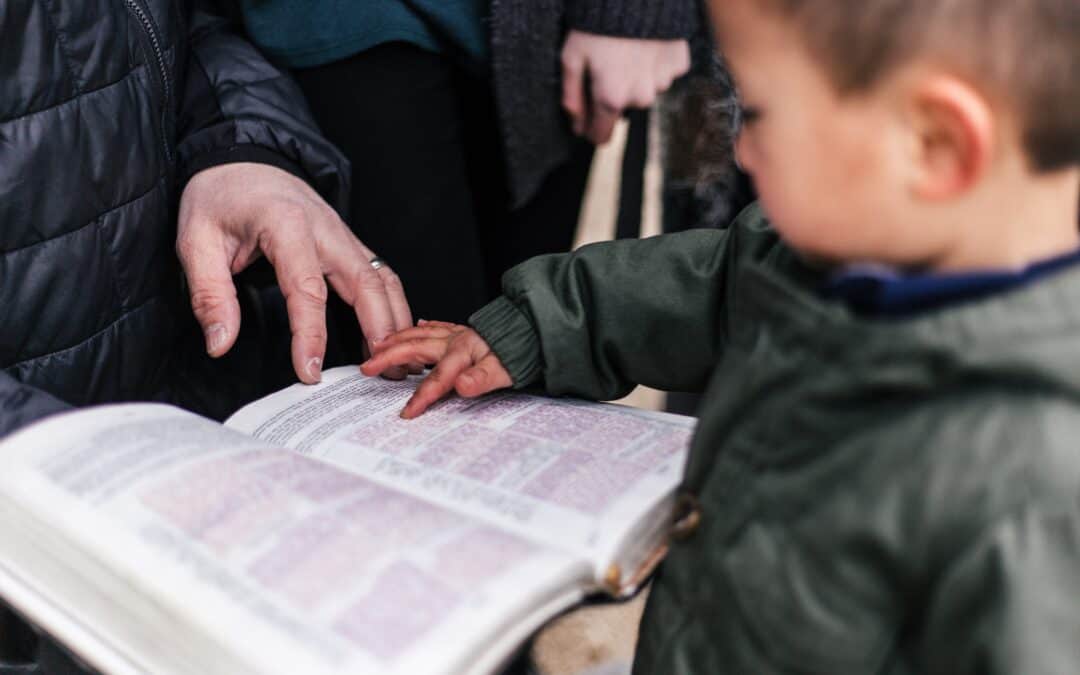Listen to Nancy’s answer recorded live on Moody radio, here:
My answer to this question is probably not what you might think. We had 4 children in 6 years, so needless to say things were always in motion. As a new Christian, I was given the impression that it was my responsibility to ensure that my children believe in Jesus and become everything that God wants them to be. I was overwhelmed with how I could accomplish such a goal. I can just say, that philosophy is a slippery slope to guilt and remorse and anxiety.
That kind of thinking is not the definition of what it means to be a good mom or dad. Of course, it would be wonderful to have our children grow up with an amazing faith that produces much fruit for the Kingdom and God’s glory. However, that is not what successful parenting is all about. Some of the most messed up kids that I know were raised by parents who pushed them so hard that their children’s faith was not their own but was one of performing for parents rather than loving God.
The best tip I ever received was this: It is not, nor will it ever be your job, to make sure your children embrace a Christian worldview. Every Christian parent’s responsibility is to adopt a biblical worldview, love God and others well. We all should be obedient to what God calls us to be and to be a godly parent by the way we love, live, and disciple. It is your child’s decision as to whether or not they receive God’s gift of salvation through the death and resurrection of Jesus, not our’s. It is their choice to live out their lives for God’s glory as they grow older.
One of the things that cause children to not engage with the Christian faith is that they do not see it lived out at home. They do not see love and grace between their parents. They do not feel that they have the freedom not to believe because “being Christian is what we do in this family.” Translation: “If you are not a good Christian, how would that make me look with my church friends.” Many children feel guilty if they don’t believe as their parents believe, so they go into performance mode, pretending to have it all together when they don’t.
Rarely do parents apologize for bad behavior, including arguments with a spouse that seem to be ongoing with no resolution. Children learn how to forgive and understand forgiveness, then they see it in action and experience it themselves. They need not only to see it, but also read about it in the scriptures and discuss a practical application with their parents.
“Instead, be kind to each other, tenderhearted, forgiving one another, just as God through Christ has forgiven you” (Ephesians 4:32).
“Make allowance for each other’s faults, and forgive anyone who offends you. Remember, the Lord forgave you, so you must forgive others” (Colossians 3:13).
One of my sons does something with his children that bonds their family together. Every night, before bed, they hang out in someone’s bedroom where each child can talk about their day without interruption for 5 minutes. They talk about a good thing that happened and what troubled them during the day or maybe some new ballet move. Each of them feels validated by being allowed to express what is going on without judgment. Mutual respect in a family goes a long way.
“Be devoted to one another in love. Honor one another above yourselves “(Romans 12:10).
The vast majority of teens want to learn about God and then be given an opportunity to choose to believe or not to believe. They want to be in an environment where truth reigns alongside grace and love. They all have questions about God and life and death that need answers. If parents don’t have them, where will they go to get them? Studying and reading the Bible together can be a great experience for everyone, if done in a way that encourages, not demands, learning. When teens know God’s truth, His love, His sacrifice that He made for them, they will want to follow Him.
-
-
If children do not personally know the God of the scriptures, how can they trust Him?
-
If children do not know the Bible is true, how can they believe and honor it?
-
If children do not know why the death and resurrection of Christ are the most important event in human history and God’s greatest gift to us, why should they believe it?
-
If children do not know that God loves them just as they are and that He wants to be there with them during the good and hard times in life, why would they want to have a relationship with Him?
-
If children do not understand that God desires that all people who believe in Him will be able to experience real love, peace, joy, kindness, faithfulness, goodness, patience, and self-control, why would they want to be close to Him?
-
If children do not know what happens when Christ-followers die, they will never have peace over losing a loved one or their destiny.
-
“I charge you in the presence of God and of Christ Jesus, who is to judge the living and the dead, and by his appearing and his kingdom: preach the word; be ready in season and out of season; reprove, rebuke, and exhort, with complete patience and teaching. For the time is coming when people will not endure sound teaching, but having itching ears they will accumulate for themselves teachers to suit their own passions, and will turn away from listening to the truth and wander off into myths. As for you, always be sober-minded, endure suffering, do the work of an evangelist, fulfill your ministry” (2 Timothy 4:1-5).

